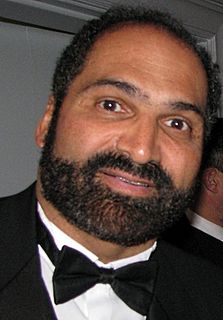A Quote by Joshua Greene
When you are thinking about whether you have an obligation to try to save people's lives, you don't usually think, well, how close by are they? Understanding what we are reacting to can change the way we think about the problem. If, biologically, morality evolved to help us get along with individuals in our community, it makes sense that we have heartstrings that can be tugged - and that they are not going to be tugged very hard from far away. But does that make sense? From a more reflective moral perspective, that may just be a cognitive glitch.
Quote Topics
About
Along
Away
Change
Close
Cognitive
Community
Does
Evolved
Far
Far Away
Get
Going
Hard
Heartstrings
Help
How
Individuals
Just
Just Be
Lives
Make
Make Sense
Makes
May
Moral
Morality
More
Obligation
Our
Our Community
People
Perspective
Problem
Reacting
Reflective
Save
Sense
Think
Thinking
Try
Understanding
Us
Very
Way
Well
Whether
Related Quotes
Morality is essentially a suite of psychological mechanisms that enable us to cooperate. But, biologically at least, we only evolved to cooperate in a tribal way. Individuals who were more cooperative with those around them - could outcompete others who were not. However, we have the capacity to take a step back from this and ask what a more global morality would look like. Why are the lives of people on the other side of the world worth any less than those in my immediate community? Going through that reasoning process can allow our moral thinking to do something it never evolved to.
I think about the structure, sure. I think about what's going to happen, and how it's going to happen, and the pace. But I think if I stop to think about it in an abstract sense, I feel very daunted. I just try to enter into the story and feel my way through it. It's a very murky, intuitive way of going about it.
Jesus does not respond to our worry-filled way of living by saying that we should not be so busy with worldly affairs. He does not try to pull us away from the many events, activities, and people that make up our lives. . . . He asks us to shift the point of gravity, to relocate the center of our attention, to change our priorities. Jesus does not speak about a change of activities, a change in contacts, or even a change of pace. He speaks about a change of heart.
The more successful enterprises are the more they try to replicate, duplicate, codify what makes us great. And suddenly they're inward thinking. They're thinking how can we continue to do what we've done in the past without understanding that what made them successful is to take risks, to change and to adapt and to be responsive. And so in a sense success breeds its own failure. And I think it's true of a lot of successful businesses.
For us what we're trying to do is find the right balance of creating a space for emotion that leads to a sense of empathy and solidarity rather than a sense of division. In my most grandiose moments I think of HuffPost as a platform that makes solidarity possible, that really thinking about the emotional content of stories is a way to help people who think, or who have been manipulated to think, that they're interests are opposed to one another, that they actually are aligned in a fundamental way and they're actually in the same boat.
People don't just get upset. They contribute to their upsetness. They always have the power to think, and to think about their thinking, and to think about thinking about their thinking, which the goddamn dolphin, as far as we know, can't do. Therefore they have much greater ability to change themselves than any other animal has, and I hope that REBT teaches them how to do it.
The way I think of it is that Russia is not going to change fundamentally. They may change tactics; they may look at their interests and figure out what actions they take, but they're not going to change fundamentally. And they're going to try to gauge what will the responses be to things that they do, and what will our things be. And here, they do wonder what is the level of our resolve? How far are we willing to go? And that is something that is very hard to gauge.
It feels like everything's been decided in advance that I'm following a path somebody else has already mapped out for me. It doesn't matter how much I think things over, how much effort I put into it. In fact, the harder I try, the more I lose my sense of who I am. It's like my identity's an orbit that I've strayed far away from, and that really hurts. But more than that, it scares me. Just thinking about it makes me flinch.
I've also been documenting an unsustainable way of life. And you see in peoples' stories that this world of consumerism does not support the moral and spiritual values - of family and community - that people feel are most important. From an environmental perspective, the quest for more and more is not going to be possible on this planet. This is a historical documentation of an unsustainable path, and my hope is that this work allows people to think about their own agency and the potential for change.
How you look at a situation is very important, for how you think about a problem may defeat you before you ever do anything about it. When you get discouraged or depressed, try changing your attitude from negative to positive and see how life can change for you. Remember, your attitude toward a situation can help you to change it -- you create the very atmosphere for defeat or victory.
People don't just get upset. They contribute to their upsetness. They always have the power to think, and to think about their thinking, and to think about thinking about their thinking, which the goddamn dolphin, as far as we know, can't do. Therefore they have much greater ability to change themselves than any other animal has.
I think Grace [Dunham] and I are always working from a personal place, and the fact that these were issues that we'd been talking about in our own families really clicked, but also Jason's [Benjamin] passion about it and his clear sense that this was going to be something emotional and remarkable to watch. It was very hard not get excited about it and want to help in any way we could.
I think people are much more concerned about money now. There aren't the big advances of the past. You feel the sense of nervousness about the book industry. It's not like before. Not that I knew very much about what it was like because I was a newcomer to it, but I get that feeling that people are more conservative in their book choices and what they are going to publish and what's a sure sell. As opposed to - just like in the economy - a sense of luxury and sense of risk taking ten years ago.




































